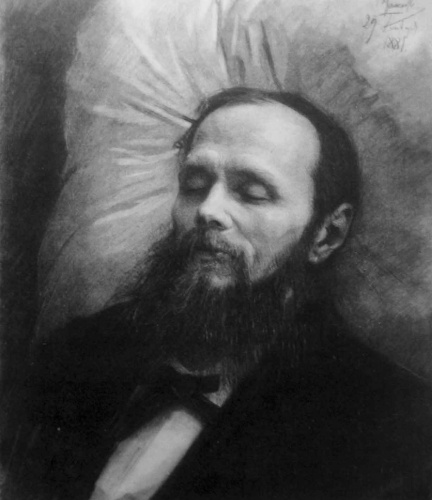Everybody is familiar with the proposition Dostoevsky puts in the mouth of one of his characters: “If God does not exist, everything is permitted.” That is to say, the nonexistence of God means that we live in a world of perfect moral freedom; we may do anything we like, up to and including mass murder. It is likely that Dostoevsky would not have been surprised that an atheistic regime (the Communists), when they took control of Russia a few decades after his death, would engage in mass murder.
But what did he mean by “God” when he said this? He did not mean a pantheistic God, a God who (or which) is identical with Nature. For such a God, while he/it may prompt us to behave this way or that (e.g., to eat food, to drink water, to have sex) by providing us with natural impulses toward those behaviors, does not make rules, does not issue commandments. No, the God Dostoevsky is thinking of is the Biblical God, the God of Christianity. This Biblical God is a lawmaker and judge. And so an expanded version of Dostoevsky’s famous proposition would go something like this: “If God the lawmaker-judge does not exist, everything is permitted.”
According to Dostoevsky, then, if you are an atheist, at least if you are a logically consistent atheist, you will believe that you are morally free to do anything you like. You will believe there are no rules of morality. But this seems to be obviously false. Look around you. There are many atheists living in the United States today, far more, surely, than were living in Russia during Dostoevsky’s time, and these present-day American atheists don’t believe they are morally free to do anything they like.
With only a very few exceptions they abstain from murder, rape, arson, robbery, etc. They are generally well-behaved and law-abiding. True enough, today’s atheists often engage in certain kinds of behavior that old-fashioned Christians would consider to be immoral, e.g., fornication, homosexuality, abortion, suicide. But that’s not because they think that there are no rules of morality; no, it’s because they think that the rules of morality permit these kinds of un-Christian behaviors.

The typical American atheist believes that the rules of morality are man-made things, not God-made things. They are made (a) by society at large, or (b) by some subsection of society, some subcultural group to which this or that person happens to belong, or (c) by the individual himself or herself. But why should the individual obey the (a) and (b) rules? Clearly he might do so out of prudence, since his society at large and his subcultural group are very powerful, and are usually in a position to punish him if he breaks their rules.
But will he do so because he has a moral obligation to obey these rules? Is there some moral authority above his society that says, “Thou shalt obey the rules of your society”? God would be such an authority – but for the atheist there is no God. Perhaps, then, he could say that above this or that particular society (the society of the United States, for example) there is a world-society, and it is this world-society that tells us, “Thou shalt obey the rules of American society.”
But where does this hypothetical world-society get its moral authority? How, if there is no lawmaking God telling us to obey the commands of this world-society, can anybody have a moral duty to obey the commands of the world-society? Speaking generally, why, if there is no higher God-made law telling me to obey man-made laws, should I obey the laws of my society or sub-society?
In the last analysis, then, and from a logically consistent atheistic point of view, only the individual person can give moral law to himself. Either (a very rare thing) he invents his own personal code of morality, or (a very common thing) he elects to accept the code of morality offered by his society at large, or by his subcultural group, or his code of morality is a combination of the two. In other words, he is, to use an expression commonly heard among today’s atheists, “morally autonomous.” That is, he is his own moral lawgiver. He occupies a position in the moral universe that once was thought to belong to God.
Now in fact, not many atheists actually think that way. Not many explicitly say to themselves, “I am my own moral lawmaker and judge” or “Morally speaking, I occupy a position that my grandparents thought was occupied by God.” But that’s what they are saying by implication, and as time passes and they come to reflect on their moral attitudes, more and more of them will say this explicitly.
No society has ever been built on such a foundation. And it’s an open question whether one can be. We shall see.














